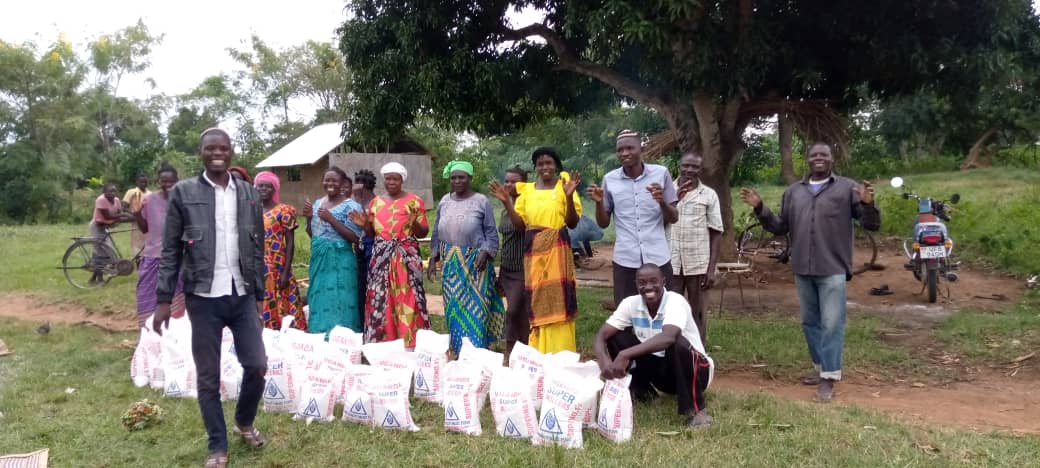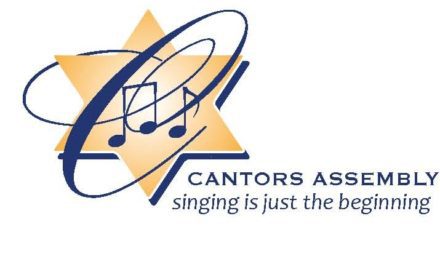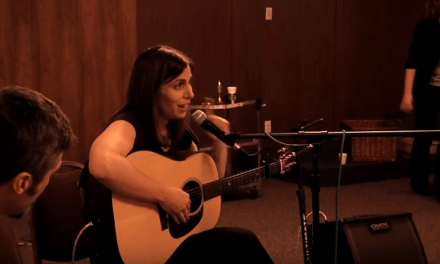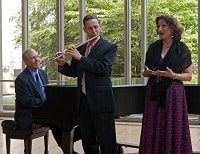May 1, 2020 was the day I discovered that, as bad as things were here in the States with the coronavirus, our fellow Jews were on the brink of starvation due to the Ugandan government’s brutal lockdown to contain the spread of the virus there. In response, on Lag B’Omer, May 11, a mere 10 days later, the Cantors Assembly premiered a 90-minute fundraising video on Facebook and YouTube. With the assistance of practically every arm of the Conservative Movement, along with numerous NGOs and several more additional broadcasts over the coming weeks, we were able to raise over $55,000 for direct food aid for our friends. All in all, we successfully delivered over two full months’ worth of food to more than 3000 people spread across 15 communities in almost 30 separate distributions, helping Jews of all denominations and their non-Jewish neighbors as well.
This is the story of how we did it.
The idea to raise money was easy. Asking all the players to make videos and assembling them was easy. Working with our Movement and NGO partners was easy. Distributing the food and making sure it would get where it was supposed to go, however, was a singular challenge that would take months to unfold, countless hours of planning, hundreds of emails and thousands of text messages, almost single-handedly supervised by Cantors Assembly member and volunteer, Cantor Pamela Schiffer.
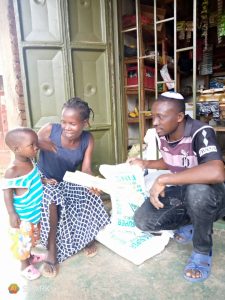
I came to know Pamela through the Cantors Assembly first-ever cantorial mission to Uganda in January, 2019, in which nine CA members, myself included, and two spouses, one of them an ethnomusicologist, travelled to Uganda for 10 days of exploration, singing, recording and solidarity for this unique community of native African Jews. Having officially converted under Conservative auspices in the early 2000s, the Jewish history of the Abayudaya actually began in 1919, over 100 years ago, when tribal and military leader Semei Kakungulu and his followers chose to follow the laws of the Old Testament and circumcised themselves and their families. What began as a small group of people doing their best to practice Judaism without any knowledge that such a thing as Judaism actually existed in the outside world, they survived the oppression of Idi Amin and now number over 2300, practicing as Conservative, Orthodox, Reform and Renewal Jews.
We came back from our mission impressed, not only by their exceptional hospitality, but with their passion for and knowledge of Judaism, even amidst truly crushing poverty. And their music was sublime. To encourage young people to stay in the community after the fall of Idi Amin, they developed their own style of music based on the sounds of their Pentecostal Christian neighbors. Thanks to the efforts of their Chief Rabbi Gershom Sizomu, the first native sub-Saharan African to receive Western s’micha (ordination), the distinctive music of the Abayudaya, along with their unique story, is now known to congregations across North America and beyond.
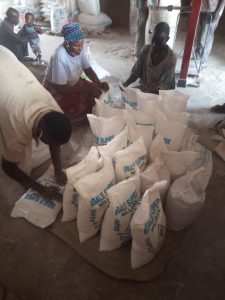
Young people from the community also work in summer camps in the US each summer, earning much needed money for survival and education, and continuing to spread the story of this special community. When I heard that many of them were on the brink of starvation as the result of their government’s lockdown, I felt that I had to do something to help. The most natural choice for a cantor was to put on a fundraising concert. The presence of COVID-19 and the resulting restrictions here in the US presented both a unique set of challenges and opportunities.
Since our Movement partners and members are spread all over the country, getting everyone together in one place wasn’t an option. Getting each of them to contribute brief videos, however, was actually a fairly simple process. We hired a filmmaker to bring all the elements together and uploaded the event to Facebook and YouTube. We are grateful to our friends at USCJ, the Rabbinical Assembly, Camp Ramah, the Jewish Educators Assembly, FJMC, Masorti Olami, and Marom for all their support, guidance and help building an audience of potential donors for this project.
But our partnerships didn’t end there. Acutely aware that simply raising the money wouldn’t be enough to get help to those who needed it, we also sought out the advice and assistance of other Jewish NGOs that had extensive experience on the ground in Uganda over the course of many years. These partnerships would be the key to the success of the entire enterprise. Harriet Bograd of Kulanu not only gave us access to Kulanu’s network of donors and helped with marketing the event but connected us with numerous other NGOs whose presence in our project would end up making all the difference. Those organizations include Global Village Connect, Aleph:The Alliance for Jewish Renewal, Ezra Uganda Assistance, Jewish Response Uganda and Putti Village Assistance Organization.
But none were as helpful as a small one-person army of Joan Levine of P’nai Or in Portland, OR. Through Joanie’s extensive relationships with trustworthy individuals on the ground in Uganda and her unwavering perseverance…read: TIME…Joanie helped us develop a system for assessing how much aid would be given to each village, who would be the individuals involved in each distribution and how they would account for all the money they were being provided. Each person in every village was ultimately provided with the exact same assistance: one month’s worth of maize flour, beans and soap…TWICE!
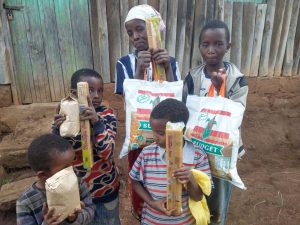
Ascertaining exactly who would receive aid hinged upon compiling the most complete census possible in each village. Thankfully, Joanie had already done some of this work for previous projects, but in other cases, we had to start from scratch. We knew that this was the only way to ensure the most equitable distribution of the funds we had been entrusted with by our donors.
The funds for each village were transferred electronically to the central account of the Abayudaya Congregation, under the supervision of Rabbi Gershom, Chairman Saul Kirya and each village’s duly appointed leadership in the Abayudaya community. A member of each distribution team would obtain the exact amount of money required from Saul, order specific amounts of food meticulously and systematically organized and provided to them by Pamela Schiffer, and then distributed the food according to the agreed-upon census, with each household receiving precise amounts of food based on the number of inhabitants and their ages. Wherever possible, the team would also provide a picture of each household receiving food.
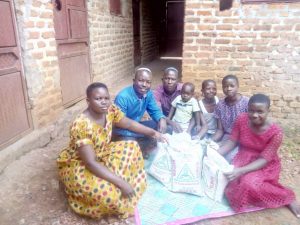
But distributing food during a national lockdown was not without its risks. Ugandan government policies at the time had forbidden food distribution by anyone outside the government. While that restriction did ease somewhat during the course of our work, we were constantly aware of threats to our various teams and the steps they had to go to in order to keep what they were doing from attracting attention. Many people refused to be photographed for fear of government reprisals. One of our teams even reported having to pay bribes to police in Kampala to avoid arrest while delivering to their community.
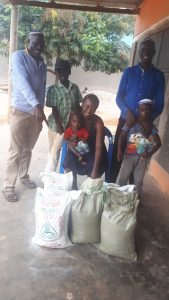
My hope going into the project was that if we raised $10,000, it would be a huge win, so I set our public goal at $25,000, thinking that if you shoot for the stars, you might just land on the moon. Nothing could have prepared me for the ultimate total of over $55,000 that we raised. The outpouring of generosity was overwhelming and it enabled us to do an enormous amount of good at a critical time. I cannot express enough gratitude to my colleagues in the CA, including Hazzanim David Lipp, Stephen Stein, Michael Stein, Jeremy Stein (none of them related, by the way), Jesse Holzer, Jack Chomsky and Steven Stoehr.
But special thanks are due to my friend and colleague, Pamela Schiffer, who volunteered hundreds of hours over the course of six months to organize each and every distribution, pouring over census data and spreadsheets, cajoling our friends in Uganda to provide us with the necessary data (a full-time job in and of itself!), creating a system to gather and store the hundreds of photos and videos we received and juggling communications with dozens of people on the ground in Uganda every single day. I may have produced the event, but it’s no exaggeration to say that Pamela, with the constant assistance of Joan Levine, directed and managed the entire distribution effort. What we achieved, we achieved because of Pamela.
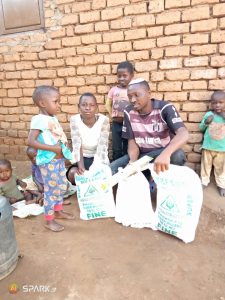
The people of Uganda, and neighboring Kenya, are still facing extreme government measures to contain the spread of the coronavirus, including stay-at-home orders enforced at the point of a gun, and a more recent crackdown on those opposed to the policies of longtime Ugandan President Musevini. I certainly can’t say that our efforts helped the Abayudaya turn some mythical corner to prosperity. The same challenges they faced before our project still exist—extreme unemployment, lack of education, subsistence agriculture, rampant diseases like malaria and typhoid, lack of access to clean water and more. But we were able to build a coalition of organizations that don’t typically work together, and we assembled a network on the ground of people who don’t normally trust each other to do something that has never before been accomplished in the Ugandan Jewish community: help every person in every community regardless of their Jewish affiliation or access to outside donors.
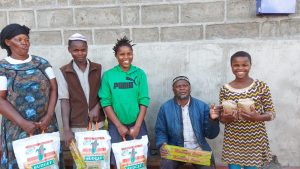
In the end, while I have no desire to quit my day job as a cantor, this project has given me a newfound sense of respect and appreciation for the challenges faced every day by those who have dedicated their lives to helping the Abayudaya and others like them. Building trust is a critical piece of every such project, and we witnessed first-hand how fragile that trust could be and how easy it was to abuse it. The Abayudaya are our friends. They are members of the tribe. Helping them felt like we were helping members of our own family, and indeed, some of them have come to feel like family as a result of the time we “spent” together on this project. If you haven’t yet had a chance to view the video we created, you may do so here.
(Video Translation: It is because of many people's efforts that I have received this needed food. Therefore, may my words of thanks and prayers be fulfilled as soon as possible. Israel, my grandson, make sure my words are fully broadcast to the ears of your donors.")
Though the Cantors Assembly is no longer accepting donations for this project, if you wish to become involved with the Abayudaya community or donate, please contact Joan Levine of P’nai Or of Portland, Harriet Bograd of Kulanu, Joanne Trangle at Global Village Connect, or Rabbi Leila Berner at Ezra Uganda Assistance.
